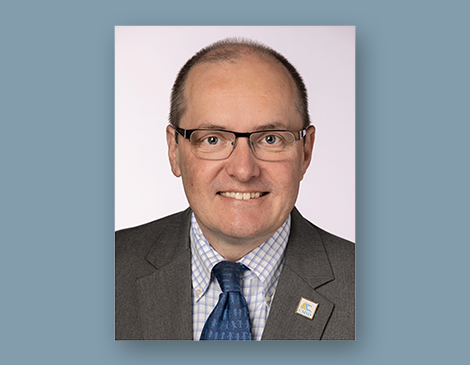After a dozen years, Eric Gordon has walked out of the Cleveland Metropolitan School District’s downtown headquarters for the last time, relinquishing his lengthy tenure as the district’s CEO.
Cleveland Magazine caught up with him on one of his final days on the job toward the end of June. We found him camped out in an empty office, cell phone laid out in front of him to field any last minute emergencies. He had short-term plans to finally read a collection of short stories by Margaret Atwood and go on a mystery vacation with his wife, Dawn, before starting his new position at Cuyahoga Community College.
But before all that, he took the time to reflect on his accomplishments as CEO, what he looks forward to the most in his new gig and what challenges lie ahead for incoming CEO Warren Morgan.
(This Q & A has been edited and abbreviated, for clarity and brevity.)
Cleveland Magazine: How are you feeling now that you're done with the job?
Eric Gordon: I’m actually feeling really grateful. There are just not many people in my industry that get to be the superintendent of a large urban system for 12 years, so I’m really in a space of gratitude that this community has trusted me and allowed me to do this work for all this time.
CM: The Cleveland Plan to improve the district is a large part of your legacy. Has that played out the way that you dreamt that it would?
EG: It’s not unfolded in the way (I thought), but it did catalyze our community around a plan that we collectively believe and have worked on now for more than a decade, and it brought a coalition of unlikely partners together who have continued to stay together and focus on education.
The shift that has to be made, though, is we got all those graduation rate gains without fundamentally changing the larger youth experience in Cleveland. We still have deep poverty, we still have kids afraid to be out in their community, we have lead problems, we have housing instability, and this is what we did in spite of that. If we can make it easier to be a kid in Cleveland, we can make it easier to be a successful student in Cleveland, too.
CM: The pandemic proved particularly challenging for the education sector, how are we doing in terms of recovery?
EG: It’s almost surreal; I mean, in some ways I just kind of lost those two years. I did serve as the principal at our culinary school because there was no one left, so I just moved my office over there. It was just a do-what-it-takes time.
CM: While still taking care of your duties as CEO.
EG: While still doing the job, and still saying to the community that we were going to be OK even if we didn’t know we were going to be OK. So I think largely that helped us get through it, this sense of bounded optimism and deliberate calm that this too will pass at some point.
The pandemic did exactly what we should have expected; K-3 literacy took a large hit, kids already don’t come to school with the same readiness as their peers, and we learn our first verbal skills by watching people talk, so it’s not surprising we took a big hit on graduation rates. I lost valedictorians and salutatorians that went to work. While we were all staying home safely, somebody was packaging and delivering to our homes, someone was keeping grocery stores open — those someones were my kids and families. But what we also saw was that some of the acceleration that was happening before the pandemic is back. That’s the message I would have people look for: Hold the district accountable that we’ve got to get back, but also hold them responsible that it is happening.
CM: Tell us about your new role at Tri-C.
EG: If somebody had said, “Write the role you want and we’ll give it to you,” I couldn’t have dreamt this. (Tri-C President) Dr. Baston has asked me to look at the college from a student’s point of view and say, “Here are the barriers that we’ve got to remove to make it much easier to be a successful Tri-C student.” The other side is he’s asked me to help imagine what is the college role in early childhood education, in K-12, in four-year bachelor's degrees and in post-baccalaureate degrees, which I think is really visionary and exciting.
CM: And you’ll be working with so many of the kids you set up to go on to college.
EG: That’s the best part about it. The part that I was most worried about is where I would still find joy and adventure and I always get that from my students, and now that I know that I won’t lose that. That’s part of what’s made this transition at the end less hard for me.




